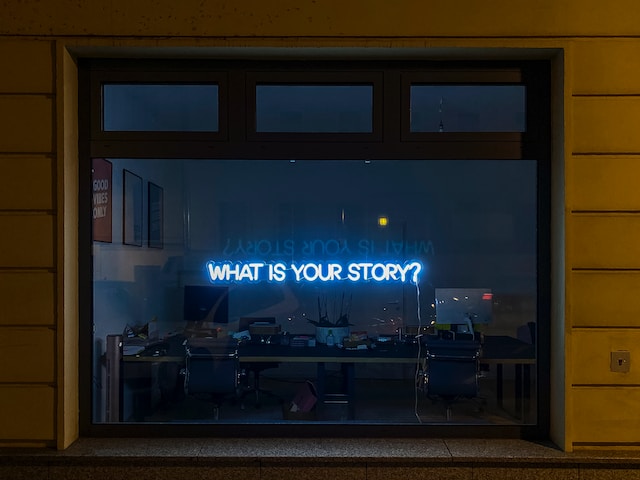Essentials
Podcasting Essentials
Related articles:
When someone begins a research project, podcasts usually aren’t the first resource they consider. However, podcasts can be exceptionally useful for students, professors, and general researchers. With so many podcasts created by a vast array of organizations, there is bound to be a show out there that fits your needs. You’re also not the first researcher to consider podcasts as a useful source. Both APA and MLA formatting guidelines include specific instructions for citing podcasts.
However, like any other medium you might reference, it is absolutely essential that you only use trustworthy sources that fit your needs. Podcasts can include incorrect or outdated facts that your research should not be based off of, so your decisions on which podcasts to reference should be built on a foundation of information literacy. Before you make those decisions, face your favorite former librarian (me) and answer all of these questions.
What information are you looking for?
Are you trying to learn about a particular time in ancient history? Or maybe you want to hear from a specific scientist in their own words? Before you decide which podcast to use for your research, or whether to use one at all, you need to know what you’re looking for. Like all media, podcasts have their advantages and disadvantages. For someone looking to hear a modern-day figure speaking about their life and their field, podcasts can work as a terrific primary source. You can listen to interviews and get answers to exactly what you’re looking for. The same can be said for in-depth dives into specific topics, though they’re much more likely to be secondary resources than primary.
However, podcasts might not be the place to go for information that can change rapidly or is very niche. In these instances, you’re more likely to find out-of-date information or not find anything at all. Don’t waste your time. Know what information you’re looking for before you start.
What is the purpose of the podcast?
Once you know what information you’re seeking, your next step is to find some potential podcasts to use in your research. However, just because a podcast references your topic does not mean it is a good option. Podcasts can be created for a number of reasons. Some are strictly entertainment, meaning they care more about amusing the audience than the information presented. Others are educational, so they’re going to make a point of having accurate information even if the presentation is a bit dry. It may seem simple enough to just avoid entertainment podcasts and use educational ones instead. However, you’re going to run into many podcasts that are created to be both. These may still be a high-quality resource for your research, but you’ll need to spend more time carefully vetting them before you commit to using them. You’ll also want to cross-reference any information you get with other sources that you already trust.
You’ll also want to know if the podcast is meant to make a profit. If it makes money and you’re not paying anything, then the money still has to be coming from somewhere. This could mean sponsors; advertisers often get a say in the information presented, so even if it’s accurate, it may end up incomplete or biased. If your potential podcast source has sponsors, be cautious in your approach to them. Research the sponsors and consider how their agenda might impact the angle from which the podcast’s information is presented.

Who creates the podcast?
This doesn’t just mean who hosts the podcast. Yes, the host is important since they are the trusted voice behind the mic, but you need to dig deeper than that. Who else is directly involved in the podcast's creation? Directors, actors, producers, and everybody else all come in with their own biases, interests, and failings. Are the people involved experts in the field they’re discussing? Chances are that you’ve found a good resource. Are they hobbyists or learning as they go? Then, why would you take the information they present as factual or accurate? Anyone with a microphone can make a podcast and upload it to the internet, so make sure you know who you’re getting your information from.
This applies to the organizations behind podcasts as well. Official podcasts from colleges, universities, and professional organizations can be very informative for both beginners and experts. Having the name of the organization attached to the podcast means that the organization’s reputation is on the line if the information turns out to be false or misleadingly presented. As always, be sure to research the organization as well, before you decide to trust them. As mentioned previously with sponsors, organizations have their own goals and agendas, so you want to make sure that whoever you are citing is an established and vetted source in your field.
While this doesn’t guarantee that information will always be accurate, you’re much more likely to get better research results from an official podcast, just like you would with an official website over someone’s independent blog.
Is the content evergreen?
Did you know that those lovely Encyclopedia Britannicas on your public or academic library shelves are a terrible source of accurate information for many fields? Yes, a librarian is telling you this and not getting struck by lightning. But here’s the thing: Encyclopedia Britannica has been online-only since 2016. If you’re referencing a physical copy, that information is nearly a decade out of date. With the online version, an encyclopedia is an excellent resource as long as it has been updated recently and you can trust the information is provided by experts. But it is impossible to update a physical encyclopedia once it is on the library shelf, short of buying a newer version, if one is even available.
This is fine when you need to know what year Mozart died (1791), not so fine if you need to learn about new advances in, say, neurology or world affairs. Both of which change so quickly that any example I use here is bound to be dated before publication. Some information does not change over time. This is what is meant by “evergreen content”. Evergreen content is content that remains timely and accurate for years. You can trust your school’s 2004 Encyclopedia Britannica for your music history report because Mozart’s death date is unlikely to change.
This is all to say that you need to check the dates on your chosen podcasts. If the episode you’re referencing came out in 2008 and you’re discussing something that changes rapidly, then it’s likely that the information is far out of date. In some cases, even referencing a podcast from a year ago can be too old. However, when you’re looking for evergreen content, the possibilities of podcasts in research expand significantly.
Podcasts are a medium, just like books and film. This means that there are credible options to help you with your research. However, just like in other mediums, you can’t automatically trust that what you’re listening to is accurate. As you decide which podcasts to use, it is essential that you practice information literacy in order to find good sources. Ask questions, get second opinions, and dig deeper. Finding and presenting accurate information is worth the extra effort.

